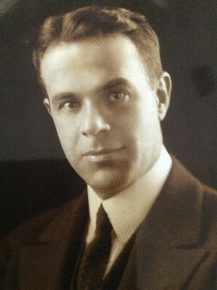
The racial injustices toward Japanese Americans confined in U.S. camps during World War II and one man’s efforts to help them is the focus of a recently-published article in HistPhil. Authored by historian Alfred Perkins, the story describes the role of philanthropist Edwin Embree, the grandson of Berea’s founder, John Gregg Fee, in protecting civil rights and ending discriminatory practices against citizens of Japanese ancestry, particularly those relocated from the west coast to the numerous internment camps in the central United States.
Embree, who in his youth lived at his grandfather’s home, was greatly influenced by Fee’s commitment to “impartial love” toward “all peoples of the earth.” As an adult, Embree was president of the Julius Rosenwald Fund, a philanthropic foundation established by the president of the Sears, Roebuck and Company. In that role, Embree had enormous influence on how the foundation’s funds would be used, including for construction of modern schools for African American students during the era of segregation.
Perkins, a now-retired Berea College professor of European history and the former academic dean, is a noted scholar on the life of Embree. Perkins authored a biography titled “Edwin Rogers Embree: The Julius Rosenwald Fund, Foundation Philanthropy, and American Race Relations” (Indiana University Press, 2011). HistPhil, which published the recent story, is a web publication on the history of the philanthropic and nonprofit sectors, with a particular emphasis on how history is able to shed light on contemporary philanthropic issues. A copy of the article can be read at: https://histphil.org/2016/04/20/edwin-embree-as-exemplar-how-one-philanthropic-leader-confronted-racial-prejudice-during-the-second-world-war/